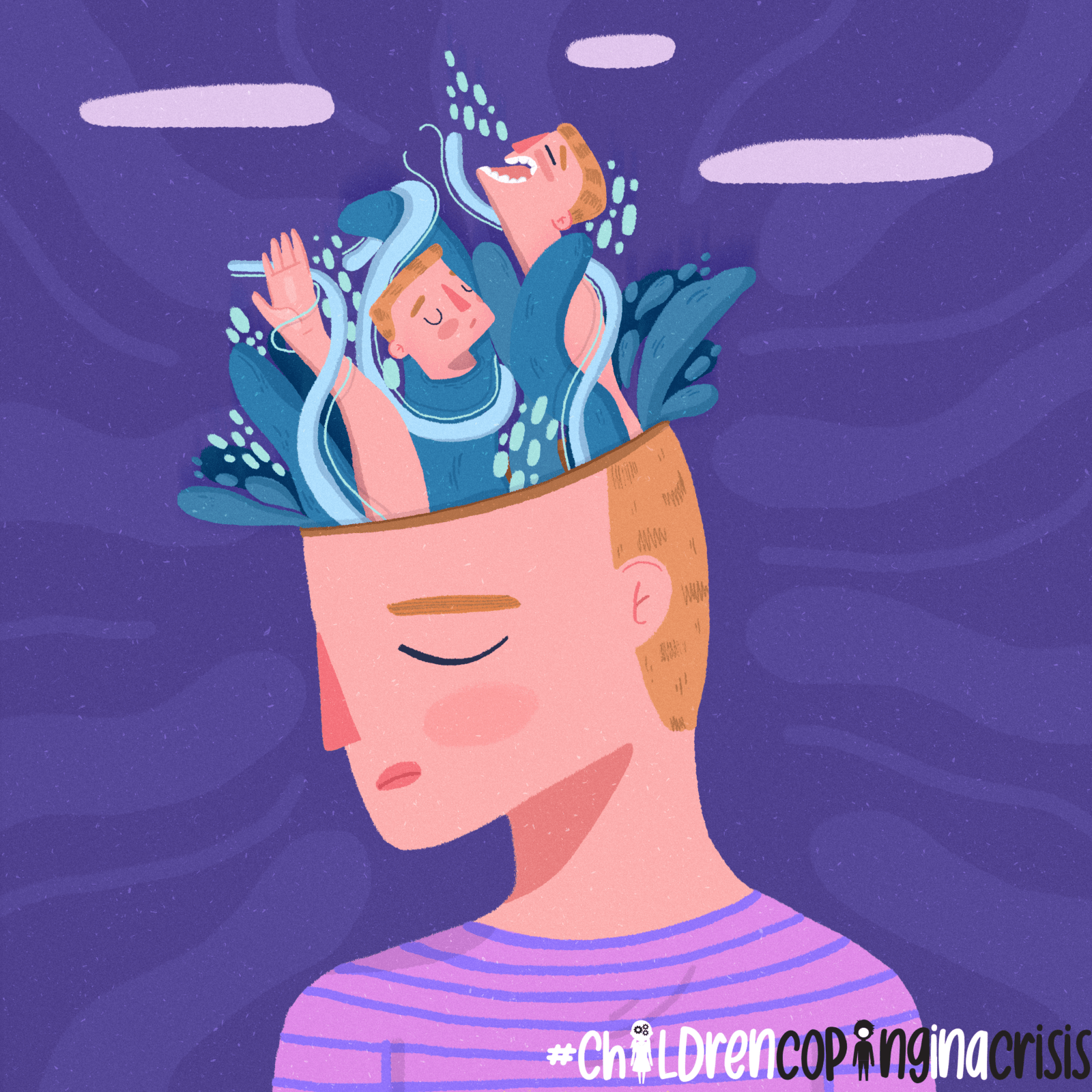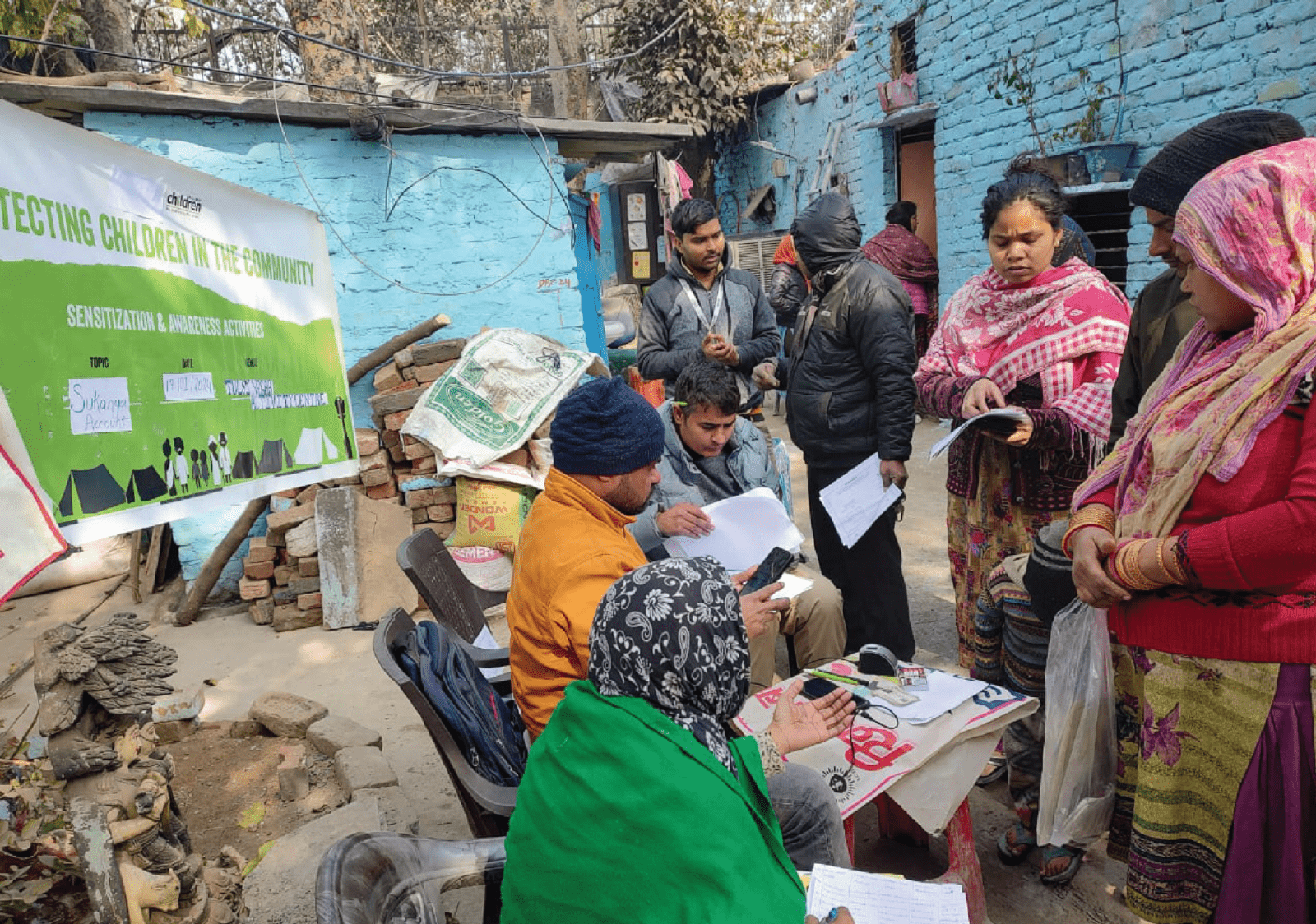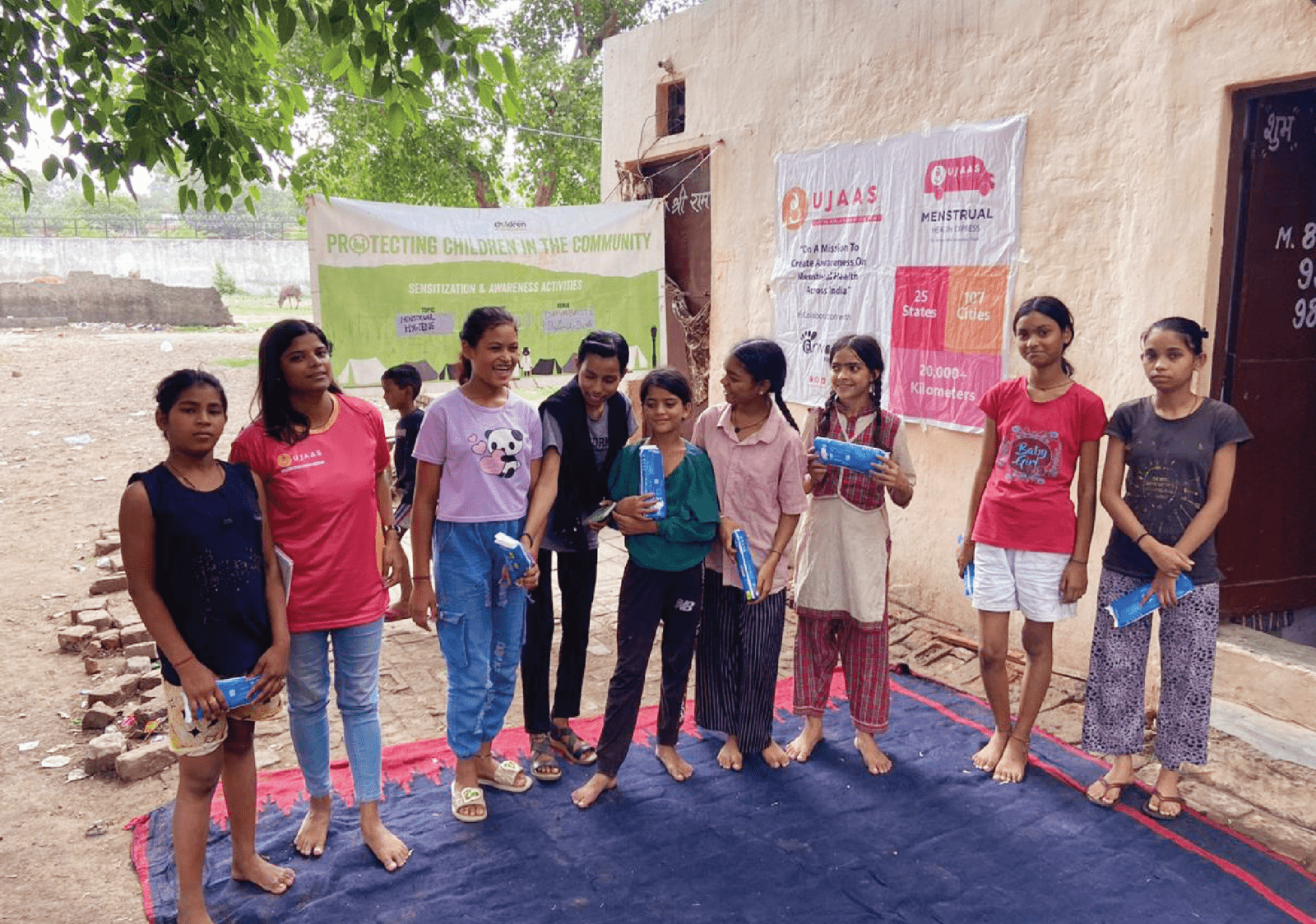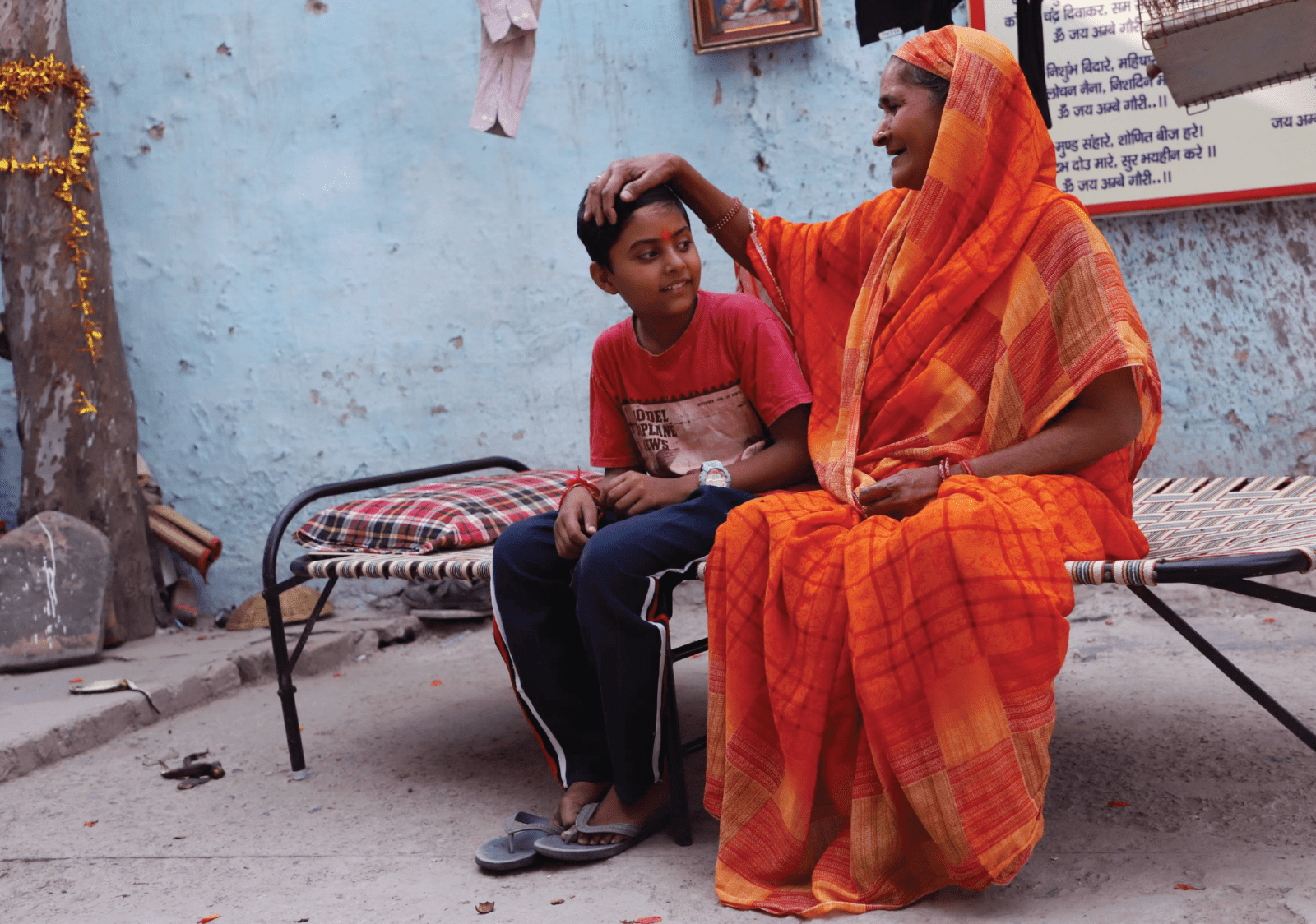Illustration – Voice of Youth
COVID-19 affects all of us, no matter how old we are. Like with everyone, not every child reacts the same way. As weeks, turn into months, and the pandemic continues in full throttle, we spoke with Dr.Paramjeet Singh, founder and Psychiatrist, Delhi Mind Clinic, who works with children and adolescents across communities and stratas, sharing with us some invaluable insights on what children are going through, how the culture towards mental health is changing (and needs to change!), what the gap and opportunity areas are and what strategies and coping mechanisms parents and caregivers can adopt, to help children through these difficult times.
Q) Doctor, tell us a little about yourself, your practice, and your experience with working with children in India, with a focus on mental health.
Ans: I am Dr. Paramjeet Singh currently working as a consultant psychiatrist with Delhi Mind Clinic, PSRI Hospital, and Tirath Ram Shah Charitable Hospital. I am the co-founder and CEO of Delhi Mind Clinic which has been given shape not just for the treatment of mental health ailments, but also an effort to provide mental health care to all including the most vulnerable amongst the society. Furtherance of mental health knowledge and wellbeing are important goals for my organization. I am a part of one charitable hospital and trust, and a Consultant at a corporate hospital. As you can see, my work profile currently is quite diverse and covers a larger part of the mental health spectrum across the city. I had been an Asst. Professor and faculty at IHBAS hospital before being a part of my current endeavour. I do support Sahara old age home and RCI India as a part of my commitment to the mental health of the most neglected and vulnerable parts of the society. Besides the above, I am an active mental health activist on many forums and committed to bringing out the voice of my patients and caregivers to the larger platforms.
Q) Based on your experience, what is the culture and outlook towards mental health illnesses in India? What is the common mindset and taboo surrounding this topic?
Ans: mental health and mental illness have been a taboo topic for a long time in our part of the world. From magico-religious beliefs to moralistic models about mental health have always subjugated persons with mental illness. Stigma and ostracization have been very high for this group of population. Hence odds have been stacked against mental health and mental illnesses. Discrimination and exclusion have been the norm which has often shrouded these lives. We all have learned to talk about mental health in whispers and dialogues have been far and few in between for the betterment of these groups. However, the narrative can change and has been showing signs of change in recent times. Persons with mental illnesses are breaking these shackles and coming out against stigma. Positive campaigns and initiatives are driving a positive outlook and approach to mental health.
Q) You have assisted RCI India, in training team members and making them equipped to handle cases in vulnerable communities. Tell us a little about your experience.
Ans: I have worked with RCI India, in forms of workshops for volunteers, assessment of children with mental illnesses, guiding volunteers for fieldwork in mental health, and through webinars. The experience has certainly been very positive. Yours is a very motivated and receptive team of volunteers. From the top-level administration to the ground level volunteers all are tuned into various aspects of the mental health of these vulnerable children. The sense of purpose and a keen desire to help is a hallmark of this group. I have developed a sense of respect and admiration for their work and their keen desire to help always. They are always ready to go beyond the call of duty for a child and his/her family. Even in the time of this pandemic they were on their toes always to serve and provide. It has been a pleasure and professionally satisfying to work with RCI India.
Q) Covid19 and the lockdown has been particularly difficult for children. Please highlight with examples the top 3 issues related to children and mental health in the current context/ Receiving feedback from RCI team members, what were the key insights that came through for children from vulnerable communities?
Ans: COVID 19 pandemic is a pandemic of both physical and mental health. The children have suffered a great deal with the anxieties, fears, apprehensions in the current times. The major themes of mental health suffering have been in terms of dealing with negative and anxiety-laden emotions in children, domestic violence rates have increased and children in these dysfunctional families have suffered a lot, and the children are grappling with a new and never heard before way of life- no physical activity, web-based classes, anxiety-laden parents, etc. the mental health suffering of children with children in this pandemic has been universal cutting across continents and social classes. The referral of children to psychiatrists has been much higher in these times.
However, in lower socio-economic strata and history of separation from family, the impact has certainly been higher. The economic hardships, the domestic issues and violence, the tendency to self-harm, and negative emotional states have been much higher.
RCI India had started an initiative of tracing back and helping the children who they had previously restored to families. Their experience was quite overwhelming and these family systems surviving on margins of society were threatened to be ripped apart. The needs of basic essentials, domestic violence, substance use in fathers, ostracization, and stigma by societies and also within the family were some of the important themes here.
I am happy to share that with some guidance and collaborative effort RCI India was successful in navigating these challenges and currents and helped many children and families in distress. I am happy to have played a small role in this larger initiative.
Q) What are the gaps + areas of opportunity in mental health for children in India vis a vis other countries?
Ans: There are multiple gaps and lacunae in child mental health services in our country. Few important shortcomings are:
- Lack of manpower. Psychiatrists, child psychologists, trained, and professional social workers are very few in numbers and there is an urgent need for manpower development.
- Lack of government support in this area. Child mental health is a neglected area for governments. Some initiatives have taken place recently, however, the need to strengthen support by the government in this area.
- Stigma and ostracization of mental health especially in children. The shame and guilt in approaching mental health facilities for children are very high and hence making the mental health of children acceptable is a huge challenge.
- Lack of screening and basic services at school and local levels. Most schools and local bodies are ill-equipped to screen and identify children with high risk for mental health problems. Sensitization and development of screening services will go a long way in making better mental health for this group.
- The lack of awareness in parents and society at large about the mental health of children leads to punishment, shaming, negative attributions, and a subsequent treatment delay. This certainly needs to be a focus area. All platforms to disseminate mental health knowledge must be utilized in this regard.
- Making cost-effective mental health services available is an initiative underlined in the Mental Health Care Act 2017, however, in practice, it needs to be implemented not just in letter but in reality.
Q) What have been the dealing, coping and intervention mechanisms/strategies for children that you have worked with, that have been successful?
Ans: Some useful strategies to help children and young population in this pandemic are enumerated below:
- Maintain a routine. Keeping a routine has been a great help for children, who have suddenly been rendered without anything to do. This hole in their timeline is very threatening psychologically. Hence make a time table and help them be engaged.
- Allow for physical activity. Be a part of household activities, indoor sports and games, yoga, etc can help them by keeping children physically active.
- Explain the pandemic and safety measures without catastrophization. Do not avoid talking about this. The fear of the unknown is higher than knowing and being prepared.
- Allow for some worry- it is alright to be a little worried. After all, this is an unprecedented scenario.
- Do not threaten or coerce using fear of COVID. “I will send you to quarantine”, “Police will take you”. Such comments can dent their mental health and should be avoided.
- Be there to listen. Talk, discuss, tell, ask keep them cued into the changing world, and do not dismiss their queries.
- Share their concerns. Listen patiently, talk non judgementally. Do not think that children are less aware or intelligent. By sharing their concerns you are keeping their anxieties in check.
- Ask what is bothering the child. If a child seems worried, aloof, irritable, crying, jittery, please ask what is bothering him/her. Be a part of their world.
- Encourage and facilitate participation in household and planning.







